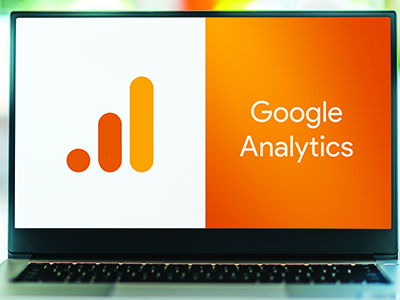In today’s ever-changing digital environment, it is more important than ever for your organization to be up to date on the latest in digital analytics while also understanding how changes in user privacy settings can affect these results.
Traditionally, this is where Google Analytics has shined as one of the premier platforms in terms of analytics and tracking, but big changes are on the way and your organization needs to make sure they are properly prepared.
Beginning July 1, 2023, Google Analytics will be transitioning completely to its new version of the platform, Google Analytics 4 (GA4). GA4 will offer many new features to marketers, many of which have not been seen before, but it will also come with a variety of changes to the traditional layout that Google Analytics has operated under previously. Our goal at DeanHouston+ is to help your organization understand these changes and how they will affect your data tracking as well as help leverage your organization to make the most out of the new capabilities Google is introducing.
We’ve helped dozens of clients with this transition so far and are ready to help yours as well.
So how does GA4 differ from the traditional Universal Analytics platform? We have broken this down into a few areas.
Updated Event Tracking
By default, Google Analytics traditionally tracked only pageviews across your properties. While you can customize it to track additional interactions, doing so requires more advanced knowledge of event tracking and Google Tag Manager.
GA4 on the other hand comes ready out of the box to collect additional data. With the Enhanced Measurement feature, you can automatically collect data on scrolling, outbound clicks, video engagement, file downloads and more. You can also customize even further based on your specific needs.
 Here’s how Google explains the difference between events in GA4 vs Universal Analytics:
Here’s how Google explains the difference between events in GA4 vs Universal Analytics:
“In Universal Analytics, events are user interactions measured independently from a web page or screen load. Downloads, link clicks, form submissions, and video plays are often measured as events. Events in Universal Analytics have a Category, Action, Label and sometimes a Value, and are displayed with these fields in your Analytics reports. In Google Analytics 4 properties, events are user interactions with a website or app that can be measured concurrently or independently from a webpage/screen load. Examples of events include page views, button clicks, user actions, and system events.”
Events in GA4 fall into four categories:
- Enhanced Measurement Events
- Automatically Collected Events
- Recommended Events
- Custom Events
More Intuitive User Privacy and Tracking Features
GA4 gives you and your users more intuitive and precise control over what personal data is collected, which will help you comply with current and future privacy regulations. For example, with GA4 you can now exclude specific events and user properties from ads personalization.
Google’s new approach to analytics is fundamentally designed to be more flexible and adaptable to a future where website cookies will be much less common, and where privacy will be an ever more central concern for users and regulatory bodies. GA4 uses a flexible approach to measurement, and, in the not-too-distant future, will include modeling to fill in the gaps where data may be incomplete.
Redesigned Tools are Now More Focused on User Engagement
In addition to being able to collect and aggregate more data, Google has made it more intuitive for marketers and analysts to dig into user-centric reports by aligning report menu sections with the customer journey. Gone are the trusty Audience, Acquisition, Behavior and Conversion menus. In their place is a Lifecycle section which divides analysis into Acquisition, Engagement, Monetization and Retention. There is also a separate User section that focuses on user demographics and technology.
Among the best features of GA4 are its new user-centric metrics and dimensions that use AI to predict customer actions and value. Meanwhile, Google has done away with the Bounce Rate category and replaced by more powerful and useful engagement metrics. These new metrics, combined with the new pre-configured scroll, video, outbound clicks and file download events should enable you to get a good idea if users are engaging with the content.

Create More Effective Audiences for your Ad Campaign
The new Google Ads Linking feature allows your business to properly track ad campaigns that are running across multiple platforms and devices. For example, if a campaign is set up across mobile and desktop devices and web and app platforms, GA4 will give you the capability to configure each so you can get a clearer picture of the customer journey. In turn, this will help your business’ bottom-line ROI and will help identify ways to decrease total ad spend on future campaigns. Additionally, Google is releasing new predictive metrics to help optimize those audiences even quicker and more intelligently.
Simplified Goals and Event Set-Up
Goal tracking was often seen as one of the most complex processes in Universal Analytics, but GA4 has completely redone this with their new Event Editing and Synthesis feature. GA4 pre-creates several actions and events that previously required manual set-up. Some default options include clicks, scroll behavior, transactions, file downloads and a user’s first visit. Some form submissions and e-commerce goals may not automatically be tracked, but the setup for these is now made much easier, and again requires much less time to implement than previous iterations of GA.
At the end of the day, the transition to GA4 is a big win for user privacy as well as for advanced web and campaign data.
These new features are just some of the main takeaways when it comes to GA4 and is just the beginning of the capabilities that will now be available.
The process of migrating data to a new instance can seem daunting, but the team of digital analytics experts at DeanHouston+ is ready to help. Reach out to us today to learn more.
